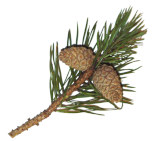first printed in Standfast 2015
Among the "accepted" MacGregor "names and septs" according to www.clangregor.com / sept-family-names (July 2015) are: Grigg, Gregg, Greig and Gregson.
This is seriously problematic. On the same website (.../about_us/history) they say
Most modern historians agree that the first certain Chief was Gregor of the Golden Bridles. Gregor’s son, Iain Camm (Ian of the One-Eye) succeeded as the second Chief sometime prior to 1390.
This is bizarre as they go on to say that
Robert the Bruce granted the barony of Loch Awe, which included much of the MacGregor lands, to the Chief of the Campbells. In common with many royal gifts of the time, it was left to the recipient to work out how he would take possession of it. The Campbells harried the MacGregors who were forced to retire deeper into their lands until they were largely restricted to Glenstrae.
It does not take a professor to know that Robert the Bruce died in 1329 - which, according to them must be before there was a MacGregor Chief - ie there were no Macgregors to harry!!
In my book "Scottish Clans: Legend Logic & Evidence" I show that the name Macgregor was adopted as a surname around 1250 - which solves this particular problem - but we are left with hard evidence of a cavalier attitude to the facts in the development of a narrative.
And so we come back to the problem of the Septs. As we have seen the MacGregors whose home is clearly and without dispute in Argyll and who did not have a surname until c1340 (according to them), at best 1250 (according to me) claim Greig, Grigg, Gregg etc. as Septs. Yet Black ("Surnames of Scotland") says that a Walter Greg witnessed a charter for Malcolm Earl of Fife in the period 1214x26
In short whichever way you look at it there were Greigs before there were MacGregors; thus they cannot be a Sept and the Macgregors should de-recognise them.
Let us try, then, to understand the situation correctly:
1. At the top of their history page they correctly regard as legend the idea that there was a Gregor son of Kenneth mac Alpin or even son of Donald mac Alpin.
2. The name Gregory is Greek and means "watcher" - whence by allusion "shepherd", which is why it was taken up by Christian leaders.
3. The first person in Scotland with the name Gregory (probably actually MaelGregory) was an ancestor of the MacGregors and was born about 1065. Because this name was used repetitively in the patronymic tradition it so happened that the MacGregors acquired their surname from a subsequent Gregor(y) (see my book).
However.....
4. There was a joint ruler of Scotland in the period 878-889 whose name was corrupted to "Gregory (The Great)" inter alia by John of Fordun. But his name was Grig (see, for example, the Chronicle of Melose, which had good reason to acknowledge him correctly) and his male line was the Strathclyde royal family. He was descended from Alpin - via a daughter. This Grig was indeed an ancestor of the MacGregors - but again through a female line.
5. The name Grig is the Bythonnic language equivalent of the Irish name Freuch. These mean "Heather" and we can see the equivalence both in the English language male given name "Heath" and in the modern Welsh word "grug" meaning "heather".
6. Of course it is true that today there are many people who go by "Greg" as a pet form of Gregor(y) and I would guess that very many of the people who give their children the name "Greig" or a variant have no idea what it means - some of them may even suppose that it is short for "Gregor(y)". [They probably don't know what that name means either!]
Nevertheless.....
There is no basis for making a general claim that the surname Greig (or any of its variants) has any connection with the surname MacGregor. Any particular such link would be subsequent to the independent development of both surnames, would be dependent on considerable migration. Any claim to any such link would have to be made on a case-by-case basis.
The Grant Connection
The original (Mael)Gregory was a younger brother of Malpeder, the Grant ancestor - which is why the MacGregors (and MacAulays and Macnabs) are part of the Siol Alpin. This was the basis for the meeting at Blair Athol in 1725 where the matter of merging the clans was discussed. The proposal failed because the MacGregors claimed superiority - falsely (of course!).
So far as I have been able to see, any connection between Grants and Greigs (&c) has been wholly serendipitous.
